Holiday hackathon makes toys accessible for children with disabilities
Local roboticist teams adapt interactive toys for easier manipulation
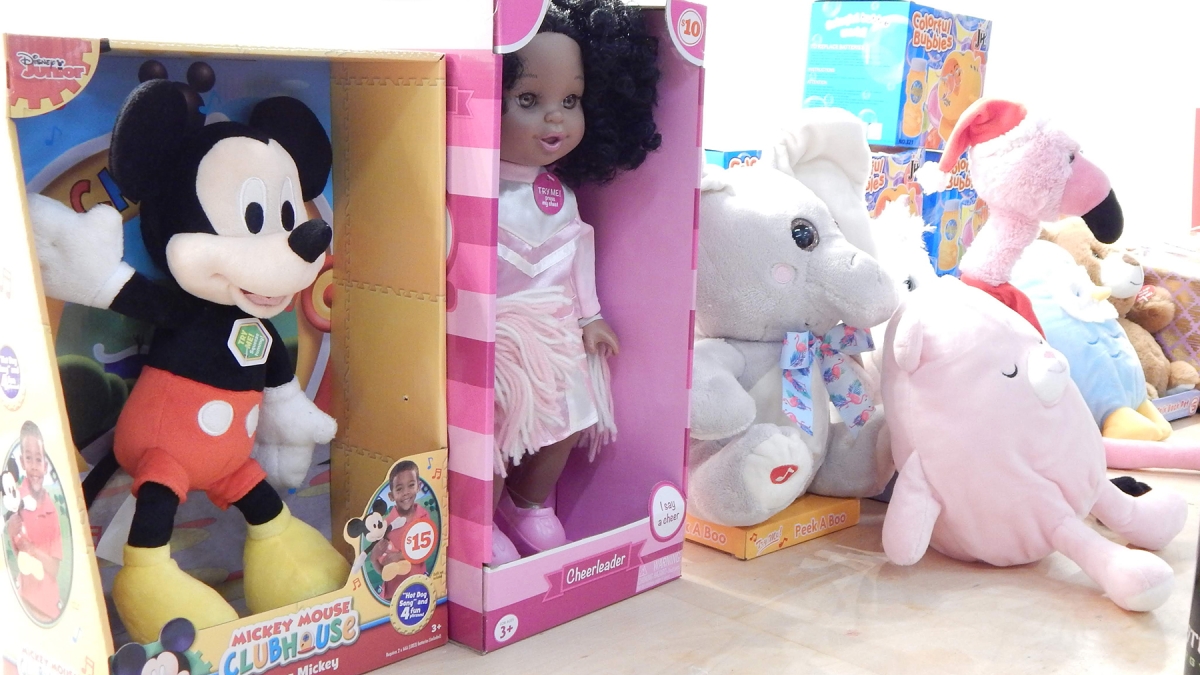
Two local robotics teams just made the holidays more accessible for 20 local children who face challenges manipulating interactive toys.
Arizona State University's Desert WAVE and a high school team from Chandler, Arizona, called Degrees of Freedom, joined forces last weekend at CREATE at the Arizona Science Center, to “hack” toys for children with disabilities. Both teams were founded by the local Si Se Puede Foundation.
“When I look at the kids that we are able to help, I see just that: kids,” said Desert WAVE member Jessica Dirks, an ASU sophomore with a double major in human systems engineering and robotics. “They have hopes and dreams and love toys just as much as I do. The only thing separating us is the size of a switch — and that is something I am confident and capable of changing for these fellow dreamers.”
While commercially adapted toys exist for children with physical limitations, they can cost up to four times the retail cost of similar, off-the-shelf toys. The adaptations made during the event cost less than $5 in parts and required basic electrical skills, like soldering, provided by the two teams.
The modified toys help children develop functional skills like problem-solving, offer a foundation for socialization, and perhaps most importantly, have fun with toys.

“My favorite moment of this event was right after I finished adapting my first toy,” said Khushi Parikh, a sophomore at Gilbert Classical Academy and part of the Degrees of Freedom team. “When I tested the toy with the adapted switch, and it lit up, I felt really proud and humbled, too, because that simple mechanism could have a profound impact on someone's life. Seeing the toy in action helped me fully realize that.”
According to Daniel Frank, an Ira A. Fulton Schools of Engineering faculty member and Desert WAVE’s adviser, the teams developed and built external push-button activators for the toys.
The hackers opened the toys, which sometimes required cutting stitches in fabric, and found the two wires that lead to the button that activates the toy. They stripped the wires and attached them to an audio jack, similar to what you use to plug in your headphones. The jack can be plugged into a large button switch that can be manipulated more easily — with an elbow, a fist or a head bop, for example — than activating a tiny sensor that requires manual dexterity some children do not have.
“This holiday hack gave me the chance to bring joy to a child that I may have never connected with otherwise,” said Andrea Schoonover, an ASU engineering junior. “I mean, what could be a better use of my time?"
Once the toys were tested, they were sewn back up and wrapped, ready to be delivered by ACCEL, the event’s co-sponsor with Makers Making Change and CREATE at Arizona Science Center.
“I enjoyed being able to put my engineering skills to use while knowing it was helping others,” said Desert WAVE’s Noella Mikanda, a human systems engineering major. “Being able to work with younger girls with a passion for engineering was just the icing on top of the cake,” she said about the opportunity to work with the high school members of Degrees of Freedom.
class="glide image-carousel aligned-carousel slider-start glide--ltr glide--slider glide--swipeable"id="glide-478524" data-remove-side-background="false"
data-image-auto-size="true" data-has-shadow="true" data-current-index="0">
data-testid="arrows-container">
aria-label="Previous slide">
aria-label="Next slide">
Degrees of Freedom members enjoyed the collaboration, as well.
“I thoroughly enjoyed working with Desert WAVE during the hackathon,” Parikh said. “The ladies are all very bright, and apart from being great mentors and engineers, they gave me an insightful perspective on life as an ASU student. From ensuring that I understood each step of the adapting process and the function of the different tools we used, to joking around with us at lunch, our big sister team made me feel included, involved and valued.”
The mentoring wasn’t in just one direction —the Desert WAVE team learned a few things from the younger roboticists, too.
“My favorite part of working with Degrees of Freedom was trading soldering advice,” said Isabella Bushroe, an ASU engineering sophomore. “The girl I worked with, Natali Rodriguez, was much better at modifying the headphone jacks than I was, so I learned some tricks from her, and it was fun to get to know her along the way.”
ACCEL, which will be distributing the toys in time for the holidays, is a nonprofit organization that serves local community members with disabilities. Co-sponsor Makers Making Change is a nonprofit that connects people with disabilities to volunteer makers who build assistive technologies.
“I just want to give a quick shout out to everyone involved in Degrees of Freedom, Desert WAVE and Si Se Puede for everything they do," said Laura Roty, a Desert WAVE member and human systems engineering major. "The mentors especially have made so many wonderful opportunities, like Holiday Hack, open to me and to so many other passionate young people.
“Growing up, I never felt that I could involve myself in engineering but these wonderful programs have made me feel like I truly belong on the path that I have chosen!”
Top photo: ASU’s Desert WAVE and Degrees of Freedom, a robotics team from Chandler, Arizona, teamed up to transform interactive toys for use by handicapped children. Photo courtesy Daniel Frank.
More Science and technology
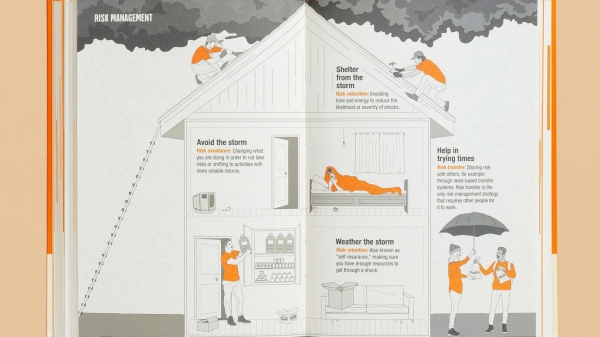
ASU author puts the fun in preparing for the apocalypse
The idea of an apocalypse was once only the stuff of science fiction — like in “Dawn of the Dead” or “I Am Legend.” However these days, amid escalating global conflicts and the prospect of a nuclear…
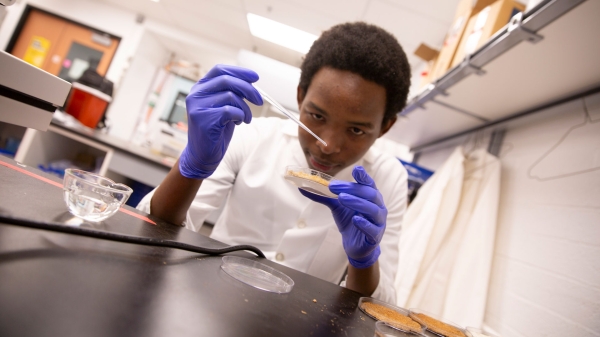
Meet student researchers solving real-world challenges
Developing sustainable solar energy solutions, deploying fungi to support soils affected by wildfire, making space education more accessible and using machine learning for semiconductor material…
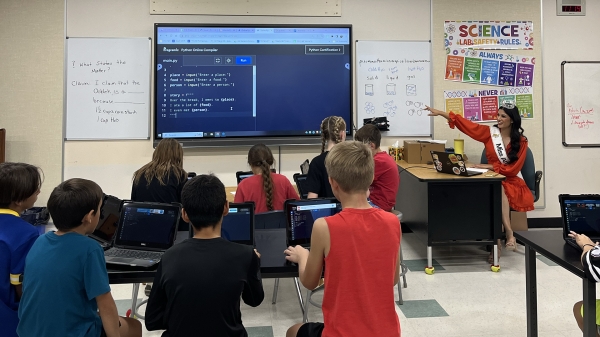
Miss Arizona, computer science major wants to inspire children to combine code and creativity
Editor’s note: This story is part of a series of profiles of notable spring 2024 graduates. “It’s bittersweet.” That’s how Tiffany Ticlo describes reaching this milestone. In May, she will graduate…
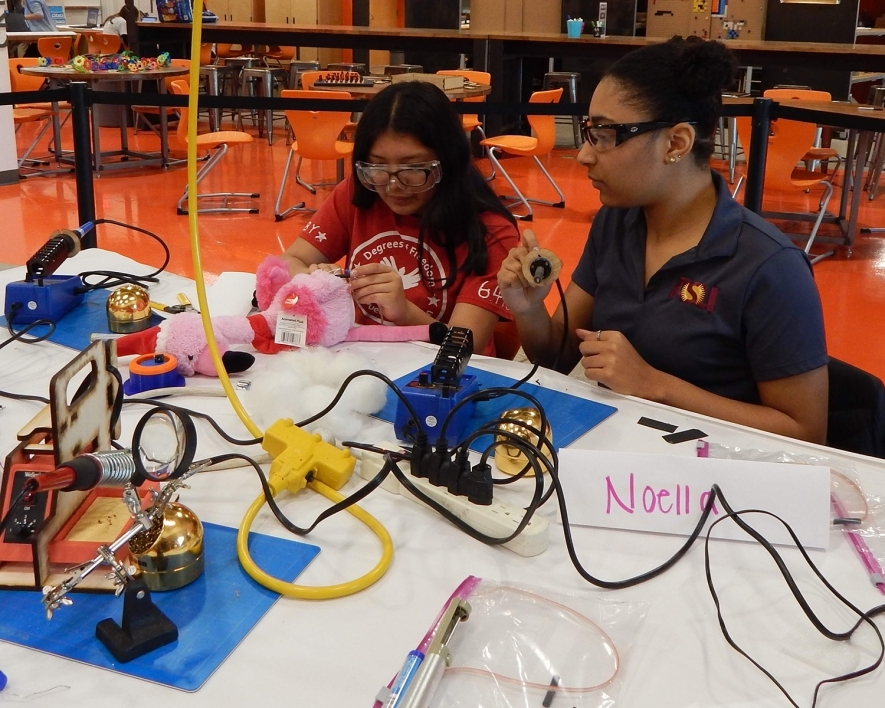 class="uds-img figure-img img-fluid"
class="uds-img figure-img img-fluid"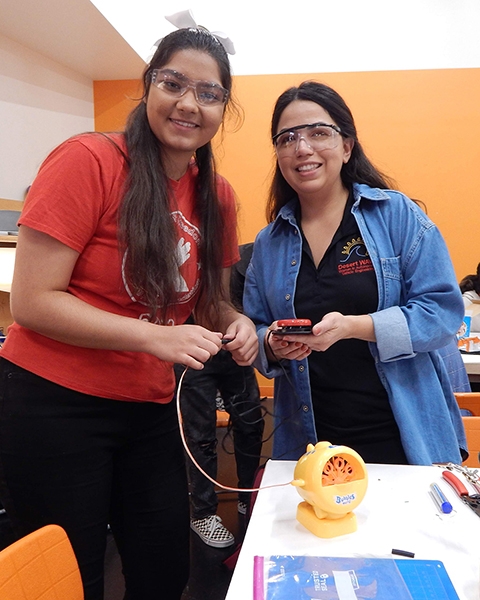 class="uds-img figure-img img-fluid"
class="uds-img figure-img img-fluid"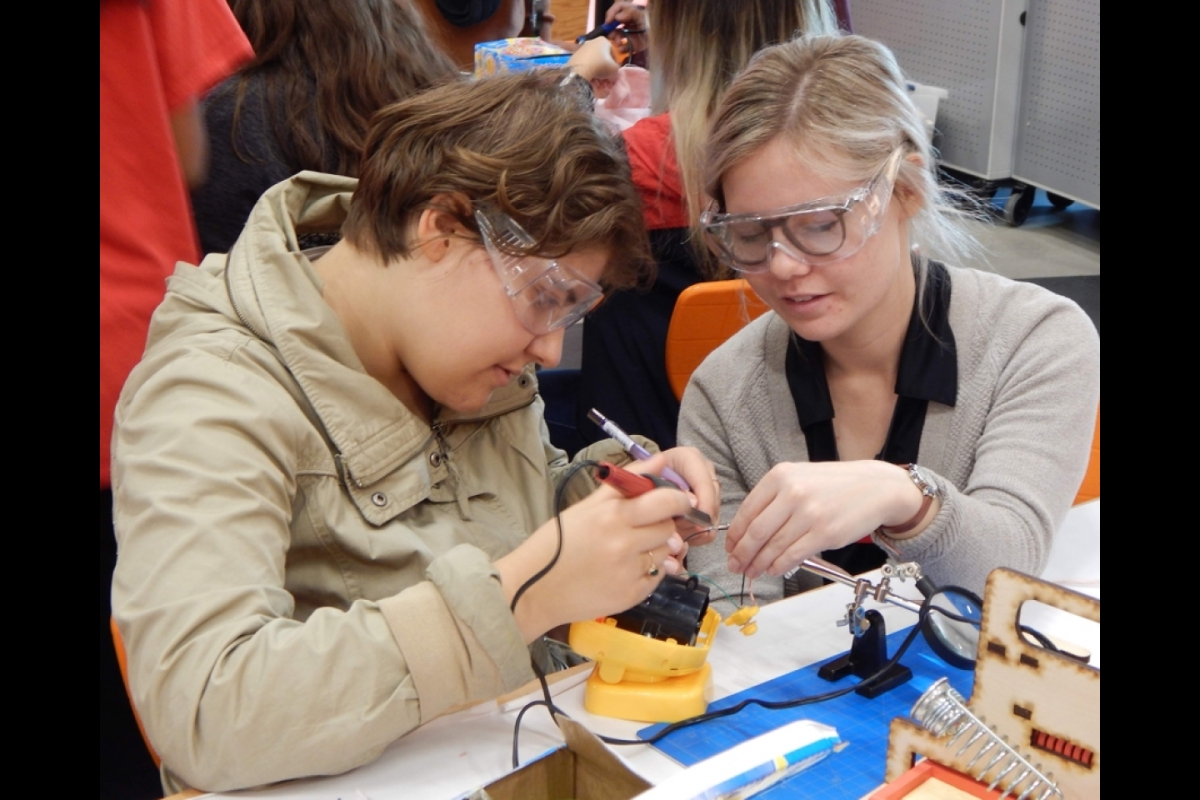 class="uds-img figure-img img-fluid"
class="uds-img figure-img img-fluid"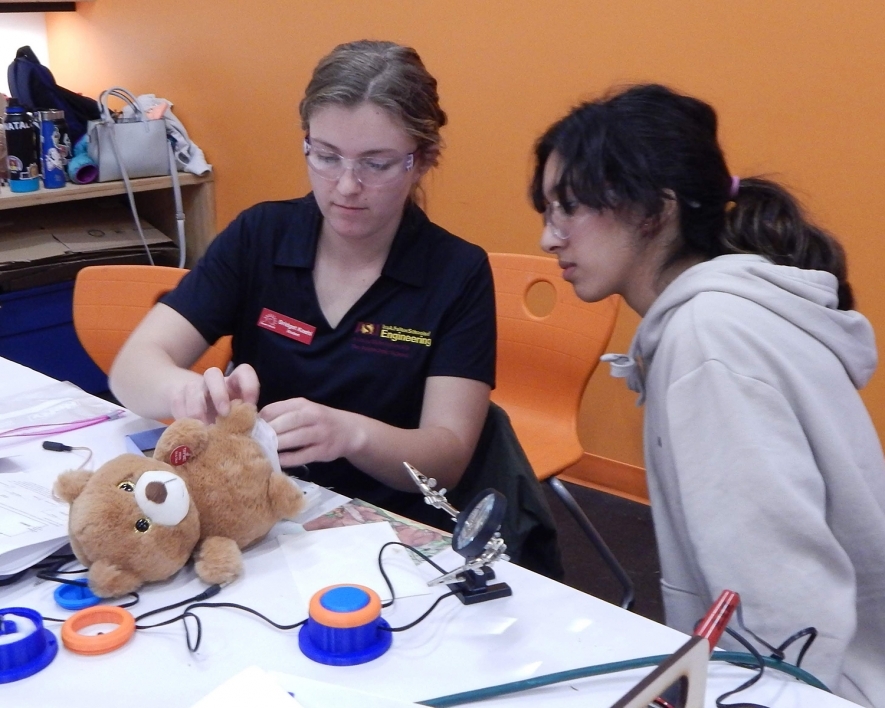 class="uds-img figure-img img-fluid"
class="uds-img figure-img img-fluid"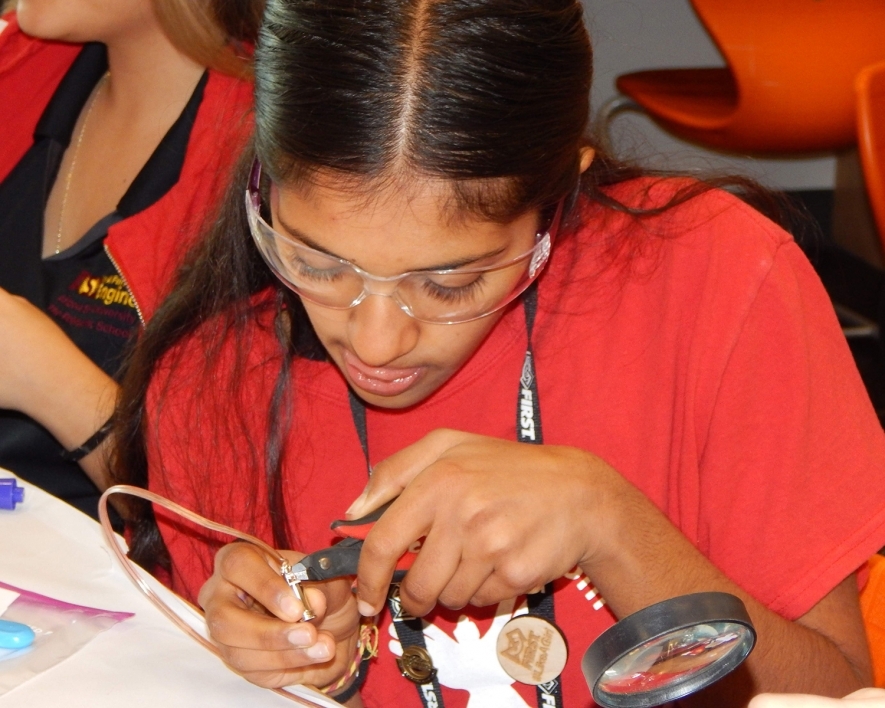 class="uds-img figure-img img-fluid"
class="uds-img figure-img img-fluid"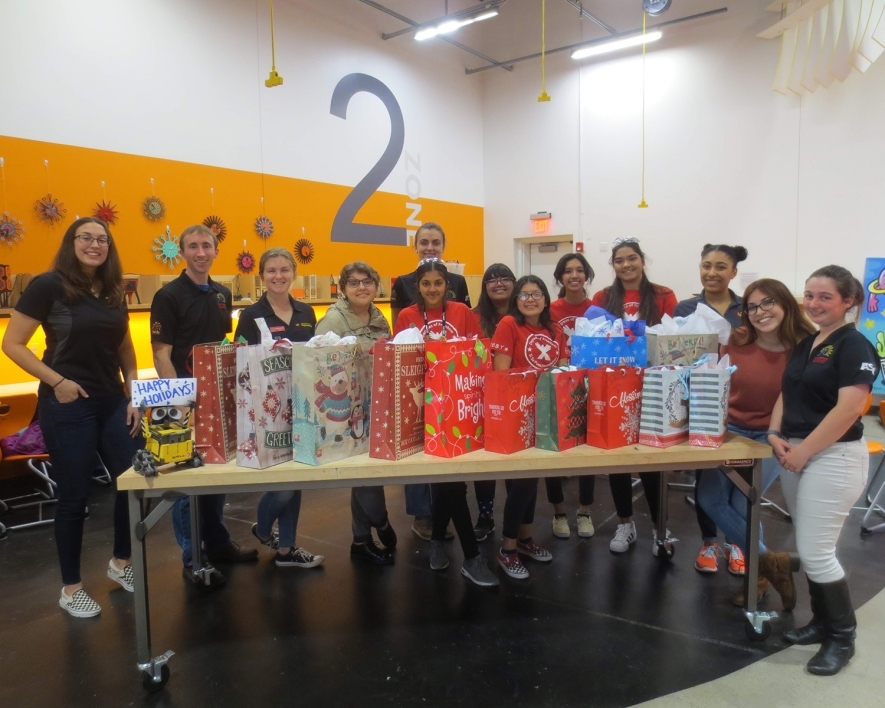 class="uds-img figure-img img-fluid"
class="uds-img figure-img img-fluid"